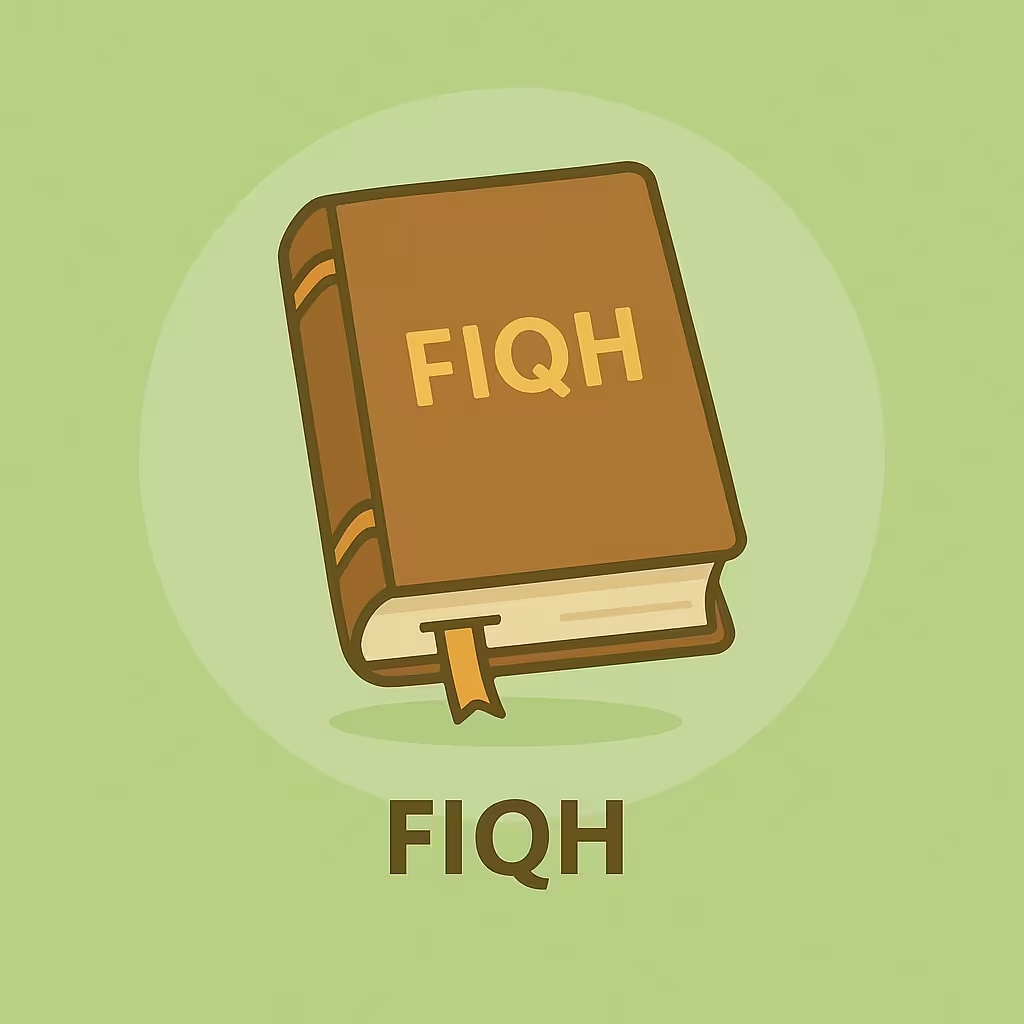What Does Fiqh Mean in Islam?
Fiqh (an Arabic word meaning “deep understanding”) is the science of Islamic jurisprudence. It refers to how Muslim scholars interpret the Quran and the Sunnah (the teachings of Prophet Muhammad ﷺ) to create practical rules for daily life.
In simple terms, fiqh explains how to apply Shariah—Islamic law—to real-world situations. It covers everything from how to pray and fast to rules for business and family life.
While Shariah is divine and unchanging, fiqh is the human understanding of it. This makes fiqh flexible. It allows for interpretation depending on time, place, and context.
Example:
The Quran commands Muslims to pray, but fiqh explains how to perform wudu (ablution), the prayer steps, and timings.
So, Shariah is the ideal law from God. Fiqh is our effort to follow that law properly.
How Fiqh Developed Over Time
During the lifetime of Prophet Muhammad ﷺ in the 7th century, rulings came directly from the Quran and his teachings. After his death, the Sahabah (his companions) taught future generations and preserved Islam’s legal tradition.
As Islam spread beyond Arabia, new situations arose. Scholars began to systematize and expand on existing teachings to answer fresh questions. They relied on the Quran, the Sunnah, and the teachings of the Sahabah.
By the 8th and 9th centuries CE, a process known as ijtihad (independent reasoning) led to the formation of formal legal schools. One key figure was Imam al-Shafi’i (767–820 CE), who wrote Al-Risala. In it, he defined the four key sources of Islamic law:
- The Quran
- The Sunnah
- Ijma (consensus)
- Qiyas (analogical reasoning)
This period marked the golden age of Islamic scholarship and saw the rise of the four major Sunni schools of law, or madhhabs.
The Four Major Schools of Islamic Fiqh
All four Sunni madhhabs agree on the core beliefs of Islam and the main sources of law. However, they differ in how they interpret and apply these sources. The four schools are:
1. Hanafi
Founded by Imam Abu Hanifa (d. 767 CE) in Iraq, the Hanafi school is known for its use of reason and analogy. It’s the most widely followed school and is common in Turkey, South Asia, and parts of the Middle East.
2. Maliki
Started by Imam Malik ibn Anas (d. 795 CE) in Medina, this school gives great weight to the practices of the people of Medina. Maliki scholars also consider public welfare (maslahah) and local customs. It’s dominant in North and West Africa.
3. Shafi’i
Founded by Imam Muhammad al-Shafi’i (d. 820 CE), this school balances text and reasoning. It gives strong importance to the Quran and authentic Hadith. The Shafi’i school is followed in Egypt, East Africa, and Southeast Asia.
4. Hanbali
Founded by Imam Ahmad ibn Hanbal (d. 855 CE) in Baghdad, this is the most conservative school. Hanbali scholars follow a strict, text-based approach. This school is mainly followed in Saudi Arabia and parts of the Arabian Peninsula.
Though they differ in some rulings, all these schools are respected in Islam. Their diversity reflects Islam’s ability to adapt to different cultures while upholding core principles. The existence of multiple valid opinions is a mercy and reflects the early tradition of the Sahabah themselves.
Why Fiqh Matters Today
Fiqh remains essential for Muslims in modern life. It offers clear guidance on how to:
- Perform the five daily prayers
- Know what breaks a fast during Ramadan
- Calculate and give zakah (obligatory charity)
Fiqh also helps Muslims live ethically. It teaches the difference between halal (permitted) and haram (forbidden). For example:
- What foods and drinks are allowed
- How to avoid riba (interest) in financial dealings
- Rules around marriage, divorce, and inheritance
Adapting Fiqh for New Issues
New questions arise in today’s world—like organ donation, cryptocurrency, or modern banking. Scholars trained in fiqh apply the same core sources to these new cases through ijtihad. This keeps Islamic law relevant while staying faithful to its roots.
Unprecedented legal matters are called nawāzil (“new issues”). Scholars study these cases and issue fatwas (legal rulings) to guide the community.
Fiqh in Communities and Nations
In many Muslim-majority countries, parts of fiqh are included in national law—especially for family matters. International fiqh councils regularly meet to discuss global issues and publish rulings for the modern age.
At a personal level, Muslims often ask imams or muftis for guidance on family, work, or ethical questions.
FAQs Regarding Fiqh
What are the 4 types of fiqh?
The four schools of thoughts (madhabs) of fiqh are the Hanafi, Shafi'i, Hanbali and Maliki schools of thought.
What is Shariah and fiqh?
In simple terms, Shariah (Islamic law) is divine and unchanging. Fiqh is the human understanding of the shariah. Fiqh covers everything from how to pray and fast to rules for business and family life.
Which fiqh is most followed?
The Hanafi madhab is the most followed school of thought both in the world and in the West. It has approximately 550 million followers globally.
What does Aqeedah mean?
Aqeedah is an Arabic term meaning Islamic creed, meaning the set of beliefs that one holds with certainty and conviction in their heart (e.g. belief in Allah, the Angels, and the Day of Judgement).
Who is the father of fiqh?
The father of fiqh is Imam Abu Hanifa, the founder of the Hanafi madhab, the largest school of thought!
How do I know if I am Hanafi or Shafi?
You can tell if you are Hanafi or Shafi usually by where you come from and/or where you grew up. For example, South Asians are usually Hanafi, North Africans are usually Maliki and Levantine Arabs are usually Shafi.
What is an example of fiqh?
An example of fiqh is knowing the steps involved in prayer, wudu, ghusl and fasting. Fiqh is the practical implementation of the shariah so how you practice Islam is all fiqh.
How to understand fiqh?
You can understand fiqh by learning it in a course online or at a local mosque, or via an app like Jibreel.
Final Thoughts
Fiqh is more than a legal system. It is a practical tool that connects divine teachings to daily life. It helps Muslims fulfill their duties and live in a way that pleases Allah.
By understanding and following fiqh, Muslims stay rooted in their faith—no matter how much the world changes.


















.avif)

Lorem ipsum dolor sit amet, consectetur adipiscing elit. Suspendisse varius enim in eros elementum tristique. Duis cursus, mi quis viverra ornare, eros dolor interdum nulla, ut commodo diam libero vitae erat. Aenean faucibus nibh et justo cursus id rutrum lorem imperdiet. Nunc ut sem vitae risus tristique posuere.
Lorem ipsum dolor sit amet, consectetur adipiscing elit. Suspendisse varius enim in eros elementum tristique. Duis cursus, mi quis viverra ornare, eros dolor interdum nulla, ut commodo diam libero vitae erat. Aenean faucibus nibh et justo cursus id rutrum lorem imperdiet. Nunc ut sem vitae risus tristique posuere.